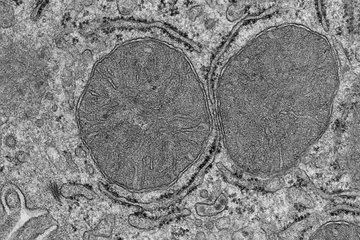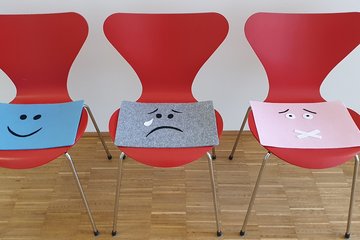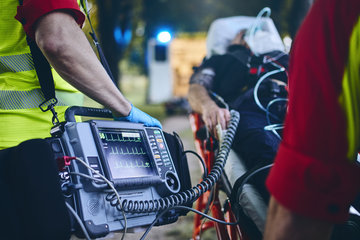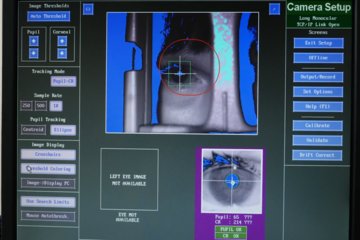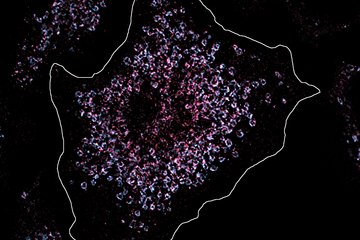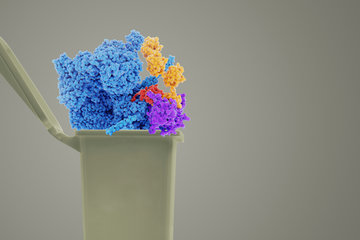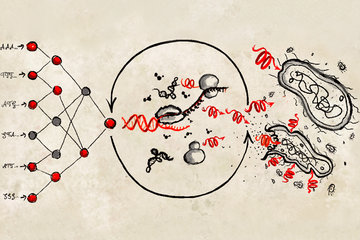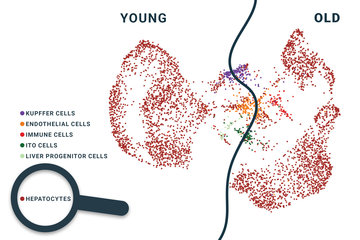Due to technical problems unfortunately the CoroNotes app is currently not available
The CoroNotes app uses anonymous health data for a better understanding of the novel coronavirus
CoroNotes can be a great help for Covid-19 research since the app can be used to collect urgently needed data on Sars-CoV-2 infections quickly and efficiently. Scientists at the Tübingen AI Center, a joint facility of the University of Tübingen and the Max Planck Institute for Intelligent Systems, have developed CoroNotes in cooperation with physicians at the University Hospital Tübingen. The aim of the project is to support medical and scientific studies on the novel coronavirus and thus gain important insights into the spread and progression of COVID-19, the illness caused by Sars-CoV-2. The free app is now available in GooglePlay and will soon also be released in the Apple App Store.

"With CoroNotes, we have created a platform that offers users the opportunity to anonymously participate in research efforts every day by answering a few questions about their health status and possible symptoms. Scientists can then use this data to draw conclusions about the course of diseases that could be related to COVID-19. In this way, all users can contribute to scientific research on this virus," said Bernhard Schölkopf, Director at the Max Planck Institute for Intelligent Systems and Co-Director of the Tübingen AI Center. “We hope that the data collected will help us answer important questions, such as which treatments are most effective, how diagnoses can be made that are as reliable as possible, or how immunity to the virus can be demonstrated.”
A simple questionnaire, which app users fill out daily on their smartphone or tablet in less than a minute, provides important information about the COVID-19 pandemic. Users answer questions on whether they feel well, or whether they are experiencing symptoms like headaches, aching limbs, or a fever, for instance. Every day counts, even if a person feels healthy. The researchers hope to use the data to better identify early indicators of serious disease progression, or to target suitable people for medical studies, which promise to provide a particularly large amount of information on how to best deal with COVID-19. The data can also help identify epicenters of the pandemic at an earlier stage.
In the future, the platform will also be available to other researchers and physicians in order to test hypotheses in studies, for example, on the influence of certain drugs or the connection with pre-existing conditions. For this purpose, additional information can be requested if necessary and merged with the previously recorded health history. This interaction makes it possible to find answers to certain questions very quickly.
"The COVID 19 pandemic is developing very dynamically. For science to develop solutions as quickly as possible, the availability of data is crucial," says Matthias Bethge, Professor of Computational Neuroscience and Machine Learning at the University of Tübingen and Co-Director of the Tübingen AI Center. Bethge specializes in the recognition of patterns and correlations from large amounts of data. "Each individual contribution counts. That’s why we hope that many people will download and use CoroNotes," said Bethge.
"It is particularly important to us that app users do not disclose any data they don’t want to disclose,” Bethge emphasized. CoroNotes meets the strict requirements of the German Data Protection Act (DSGVO). The app only collects data from users who actively decide to share certain information - data is not collected automatically. CoroNotes is not a tracking or tracing app, and does not record movement profiles or contacts with other people. In addition, users are given a randomly selected pseudonym when they register and are not required to provide their telephone number or email address. They thus remain anonymous and the app only collects the health data the users themselves have provided. Users can download or subsequently delete their own data at any time.
The scientists share this anonymous data with public health organizations, academic research institutions, or non-profit organizations based in Europe - again under the strict data protection guidelines of the DSGVO. The data may only be used for research and analysis projects directly related to COVID-19.
This article was modified an May 7th 2020.

